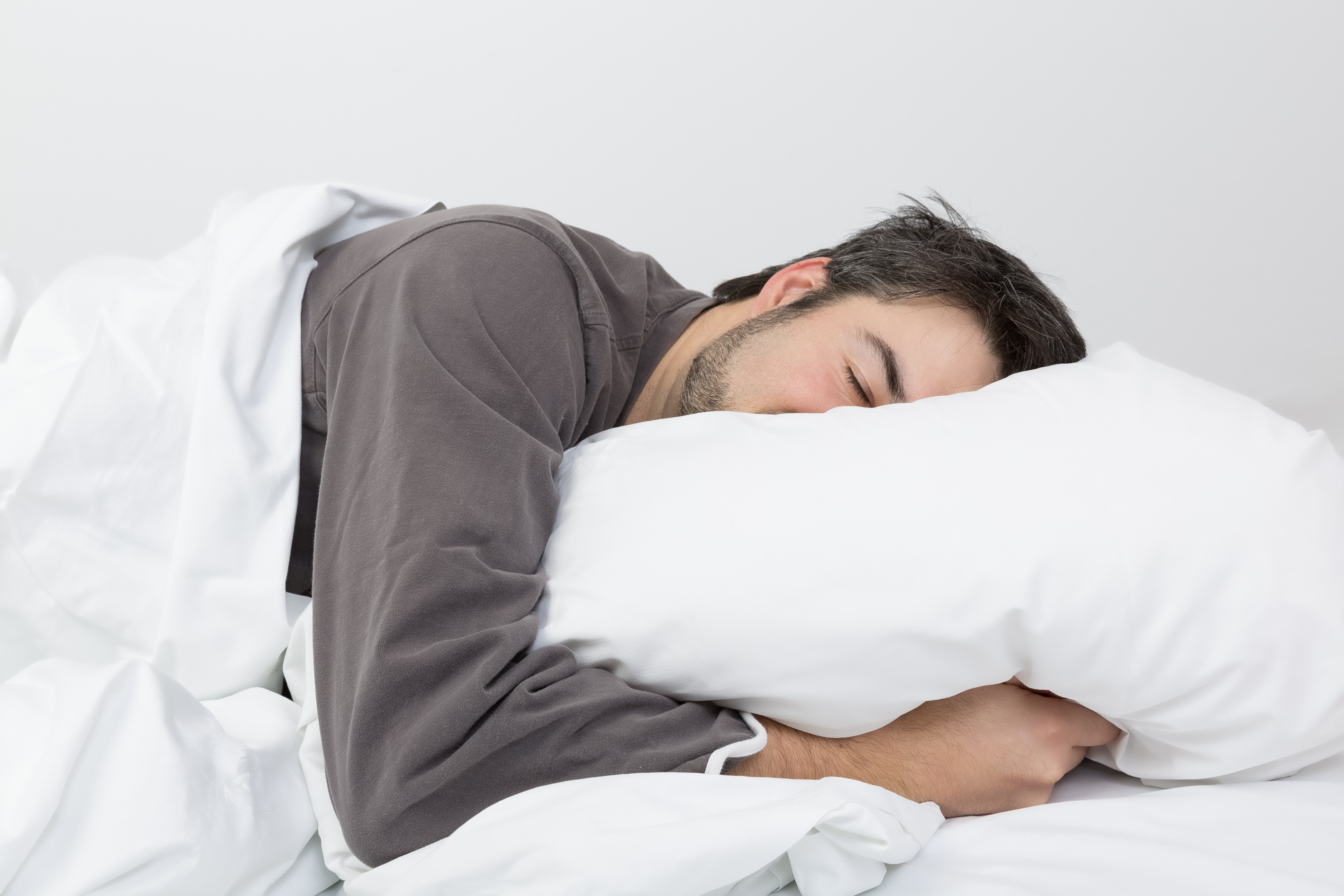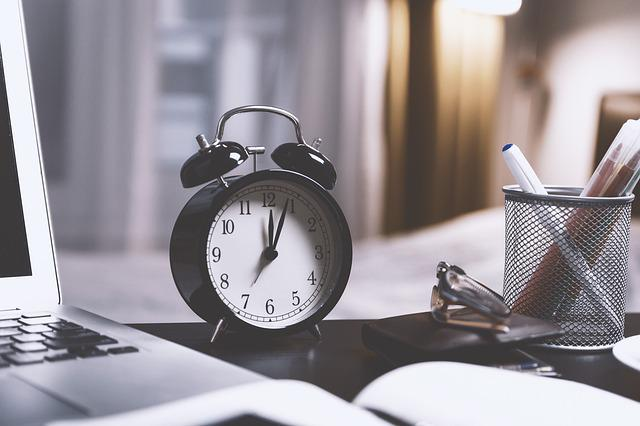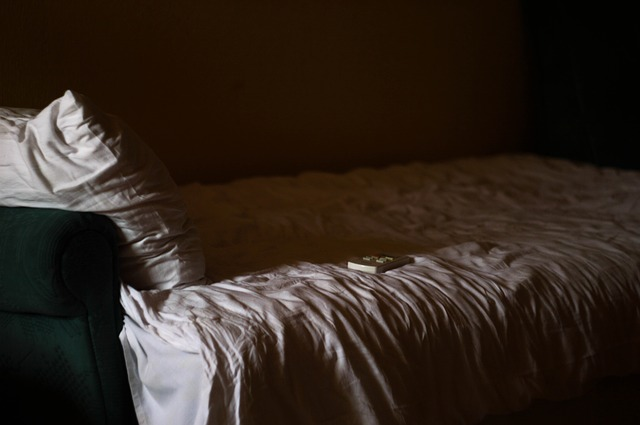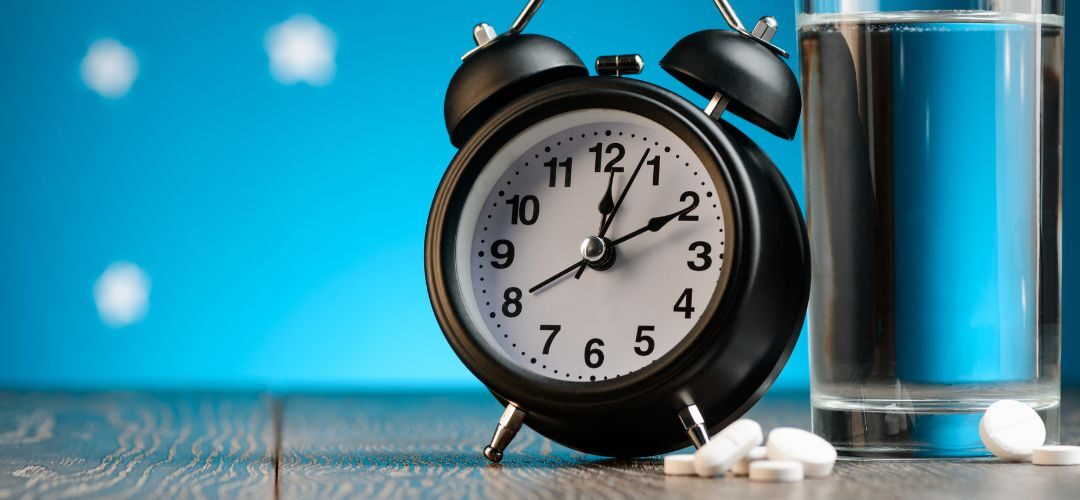If you’re having trouble falling asleep or staying asleep throughout the night, you’re not alone – as recent research suggests around 60% of all Australian’s experience symptoms of insomnia at least three to four times per week.

As a disorder that affects more than half of all Australians, there is undoubtedly a vast number of pharmacologic treatment and sleep medicine options available for achieving better sleep quality.
In recent times, utilising melatonin for sleep has become an increasingly popular solution, as it delivers a non-drowsy formula of a hormone that plays a vital role in your natural sleep wake cycle.
So, let’s get into it and find out:
What is melatonin?
Is melatonin right for you?
Why are you having trouble falling asleep?
What is melatonin?
Melatonin is a sleep hormone that plays a crucial role in your sleep cycle. During the evening, natural melatonin levels in the bloodstream typically rise to trigger feelings of sleepiness. The cause of increased melatonin levels in the evening is your brain’s response to darkness, with melatonin secretion stemming from the pineal gland due to the response of the central nervous system.
The brain naturally produces adequate melatonin for sleep when surrounded by a dark or dimly lit environment, as the darkness communicates with the body to sustain the timing of your circadian rhythms. When you are visually exposed to light at night, the production of melatonin may be blocked, resulting in an increased likelihood of sleep problems.
What are circadian rhythms?
A circadian rhythm, also referred to as the circadian cycle, is a fundamental part of our central nervous system, which works to internally regulate our sleep wake cycle. Part physical and part psychological, the circadian rhythm relies on our brain to process the visual and physical stimuli in our environment to know when it is time for rest.
Circadian rhythm works on a 24 hour revolving cycle, as part of a fully functioning central nervous system. Although circadian rhythms are linked to daily routine and time zone factors, the melatonin secretion needed for successfully functioning can be easily disrupted by elements such as temperature and light intensity.
Understanding the sleep wake cycle
Circadian rhythms have the power to either positively or negatively impact health in a variety of ways, throughout all areas of the body. However, the sleep wake cycle is by far the most well known of these biological rhythms.

The average person has a sleep wake cycle that follows a 24 hour pattern, consisting of around 8 hours of rest and 16 hours of wakefulness. The importance of melatonin for sleep is often most noticeable when your sleep wake cycle is imbalanced, often resulting in trouble falling asleep or poor sleep quality.
If your sleep cycle is unaligned with your normal routine, this is often when circadian rhythm sleep disorders manifest. Resetting your body’s internal clock can be a challenging task, but it is possible. Many people find that melatonin supplements provide the most effective means for assisting with resyncing a circadian rhythm.
Circadian rhythm sleep disorders
While there are a number of different sleep problems caused by a disruption to circadian rhythms, insomnia is the most common side effect. This sleep disorder may present as a temporary condition or as chronic insomnia.
Although insomnia is one of the more common sleeping problems, each person will manifest unique symptoms. Trouble falling asleep may lead to the onset of insomnia, while others may fall asleep easily, but have issues with staying asleep throughout the night.
Melatonin supplements may assist people with short term problems of trouble falling asleep, such as those seen in people with jet lag or a temporary disruption to their daily routine.
More than 12% of people will experience chronic insomnia at some stage in their lives, a condition that is associated with and increased risk of heart disease and depression.
Jet lag
If you’re a seasoned traveller, you know too well how exhausting jet lag can be, on the mind and body. Although many people think jet lag is simply caused by a long flight or exhaustion from travelling, the condition occurs when the body’s internal clock is disrupted due to changes when travelling through different time zones.
The environmental changes you experience when travelling between different countries and time zones, such as varying temperatures and light exposure, all contribute to the severity of jet lag, resulting in lowered melatonin production when it comes time to sleep.
Melatonin for sleep disorders, such as jet lag, has yielded positive results, as it allows the body to more efficiently resync circadian rhythms to naturally fall asleep.

Sleep disorders for shift workers
Many shift workers use melatonin for sleep improvement, after changing schedules has resulted in an imbalanced circadian rhythm. For most people, the body’s internal clock is accustomed to functioning around the usual environment of your time zone, which means you’ve grown used to sleeping during the night and being active during the day.
Although some shift workers may be able to adjust to the change in circadian cycle, others could develop more serious side effects of circadian rhythm sleep disorders, which can lead to impaired judgement, inability to operate machinery and decreased focus.
Particularly when considering shift work, the use of melatonin for sleep improvement can offer a highly effective solution that allows your body to rest and sleep during daylight hours. Even though melatonin supplements may assist you with better sleep quality during the day, it’s also important to be aware that the effects of melatonin can last for up to 10 hours. Using melatonin for sleep does not necessarily mean you’ll be more alert and active throughout your night shift.
The effects of melatonin can differ between individuals, so for shift workers considering melatonin for sleep, we recommend talking to your doctor about suitability and the right melatonin treatment for you.
Delayed sleep phase syndrome
Often affecting people on a longer term basis than many of the other circadian rhythm sleep disorders, delayed sleep phase syndrome is seen in up to 75% of adults with childhood-onset attention deficit hyperactivity disorder (ADHD).
Variations in body temperatures and excessive movements occur for around 90 minutes later in the evening, when compared to results found in healthy adults. Sleep latency is a common symptom of this disorder.
The physiological signs associated with falling asleep tend to manifest differently in someone with delayed sleep phase syndrome, which often causes sleep latency, resulting in further difficulty when waking in the morning.
Although the effects of melatonin vary between individuals, successful results have been seen in the use of melatonin for sleep, with people who suffer from psychological impairments or brain disorders, such as attention deficit hyperactivity disorder.
Taking melatonin with strategic timing
As with many sleep aids, a great deal of people are likely to assume that melatonin products simply need to be taken when you’re ready for bed. According to a recent clinical practice guideline from the American Academy of Sleep Medicine, however, strategic timing is necessary to get the highest level of effectiveness out of most melatonin supplements.
If we rewind to 2017, the Journal of Clinical Sleep Medicine released an article questioning the overall success rates and effects of melatonin, and after further data collection from studies in more recent years, the American Academy of Sleep Medicine reviews reveal that it all comes down to timing.
Let’s dive into what we need to know.
How long do melatonin supplements take to work?
As with all sleep aids, the effects of melatonin treatment will present differently for each individual. For the average person, within 30 to 60 minutes of taking melatonin, you will begin to feel the effects of enhanced sleep promotion.
If you suffer from sleep latency or delayed sleep phase syndrome, it is often recommended that you take melatonin approximately 90 minutes prior to your desired bedtime.
Underlying health conditions, shift work, age and travel obligations are all good reasons to discuss your options and buy melatonin supplements from a medical professional.
How long do melatonin supplements last?
Depending on the formula and dosage, melatonin supplements may stay in the body for between 4 and 10 hours, with a varying degree between each individual. Although you are able to purchase a melatonin supplement over the counter, it is recommended that you seek the advice of a medical professional to ensure you are taking the optimal dosage when using melatonin for sleep, to avoid daytime drowsiness.
Due to the amount of time that melatonin supplements may stay in the body, it is advised that you do not operate any heavy machinery within at least 6 hours of ingestion.
Is melatonin safe for everyone?
Taking melatonin supplements is considered generally safe for most people, however it is still recommended that you always use only as directed by your doctor.
Unlike other prescribed sleep aids, such as Benzodiazepines, people are unlikely to become dependent on melatonin for sleep and also have a decreased likelihood of experiencing daytime sleepiness following consumption.
Maintaining an effective sleep cycle is the key to a good night’s rest. To ensure that you are complementing your circadian rhythm, avoid taking melatonin supplements after your normal bedtime, as doing so can shift the sleep wake cycle, resulting in daytime drowsiness.
Side effects of melatonin supplements
When using melatonin for sleep, it is important to understand that, as with any form of medication, you may experience some side effects.
The most common side effects of melatonin supplements are:
-
Drowsiness
-
Headache
-
Dizziness
-
Nausea
Additionally, melatonin supplements may have adverse reactions with other medications, such as diabetes and high blood pressure medications, dietary supplements, hormone replacement therapy, contraceptive drugs, immunosuppressants, and anticonvulsants.
How to naturally boost melatonin levels
Although a melatonin supplement is often needed to treat short term sleep disorders, there are a number of simple things you can do to naturally boost melatonin production in your body, making it easier to fall asleep at night.
Say goodnight to technology
Changes throughout the years have led to a culture where it is not uncommon to take your mobile devices to bed with you at night or even have a television in the bedroom. While you may think that watching a boring movie will take you to snooze town or that playing a mindless game on your phone will cause you to fall asleep, this time spent using technology is likely doing you more harm than good.
Our bodies need melatonin for sleep and while your brain is visually processing the bright lights of your devices, it is unable to naturally produce the optimal melatonin levels needed for you to fall asleep.
Use your environment to promote better sleep quality
With your body’s internal clock directly affected by circadian rhythm, it’s never been more important to create a space that encourages you to fall asleep.
Many sleep problems are heightened by insufficient melatonin production, often caused by visible light within your bedroom. By creating a dimly lit area, you are communicating with your brain that it is time to start producing more of the sleep hormone, allowing you to fall asleep with greater ease.

Adopting an approach of complementary and integrative health methods is often the ideal solution for finding the most effective treatment for your sleep needs. For instance, sleep quality can often be improved by taking melatonin supplements, while also making small lifestyle changes, such as those above.
Other sleep aids, therapies and treatments
With more than half of all Australian’s facing sleepless nights and spending more than $66 billion per year on healthcare due to distressed sleep, it’s safe to say that there a variety of sleep aid options available to you.
Whether you favour the use of natural or prescribed remedies, many people who have trouble falling asleep find benefit in adopting a complementary and integrative health technique, to identify the most effective treatment for your needs.
Over the counter melatonin for sleep
Although over the counter melatonin has become increasingly popular and easy to access in many countries around the world, research suggests that poor quality control may mean it’s not always the safest option.
A publication by NIH found a number of discrepancies between the actual dosage found in melatonin products, compared to with what was stated on the packaging, during an investigation of over the counter melatonin treatments.
As with all forms of medication, administering the optimal dosage of melatonin for sleep is vital in achieving an effective treatment solution. Taking an incorrect dose of melatonin may lead to ineffective results if the amount is too little, while taking melatonin in a dose that is too high for your tolerance can lead to unexpected side effects or allergic reactions.
Even though taking melatonin is considered generally safe, it is always important to do so under the guidance of a medical professional.
Prescription sleep medication
If you think a melatonin treatment might be the right sleep medicine for you, it’s a good idea to consult with a physician who can prescribe melatonin supplements that are tailored to your individual needs.
To ensure melatonin supplementation is right for you, a healthcare professional will evaluate various aspects of your lifestyle and sleeping problems, such as:
-
Possibility of international travel and jet lag
-
Overall sleep quality
-
Routines of shift workers
-
Identifying potential allergic reactions
-
Body weight and age
By factoring in these various equations, your doctor can create a plan to optimise your behavioural sleep wake scheduling moving forward.
Alternatively, if taking melatonin is not the answer to your sleep problems, there are a number of other effective treatments available. Prescription strength neurotransmitters have shown to be effective in regulating the body’s internal clock to improve sleep quality.
Many people find that a combination of natural remedies and prescribed sleep medicine provides the most effective health benefits for rest, relaxation and improving sleep.
Let’s get your health sorted!
If you’re dealing with sleeping problems, start the conversation with one of our doctors today.
Sources
American Academy of Sleep Medicine. (2020) Study finds that melatonin content of supplements varies widely. (https://aasm.org/study-finds-that-melatonin-content-of-supplements-varies-widely/)
Health Direct. (2021) Insomnia. (https://www.healthdirect.gov.au/insomnia)
Mayo Clinic. (2020) Is melatonin a helpful sleep aid – and what should I know about side effects of melatonin. (https://www.mayoclinic.org/healthy-lifestyle/adult-health/expert-answers/melatonin-side-effects/)
NIH. (2017) Poor Quality Control of Over-the-Counter Melatonin: What They Say Is Often Not What You Get. (https://www.ncbi.nlm.nih.gov/pmc/articles/PMC5263069/)
NIH. (2018) Delayed Circadian Rhythm Phase: A Cause of Late-Onset ADHD among Adolescents? (https://www.ncbi.nlm.nih.gov/pmc/articles/PMC6487490/)
Sleepy Express. (2022) Australian Sleep Statistics. (https://www.sleepysexpress.com.au/blog/australian-sleep-statistics)
This guide is designed to be informative and educational. It is not intended to provide specific medical advice or replace advice from your medical practitioner.
